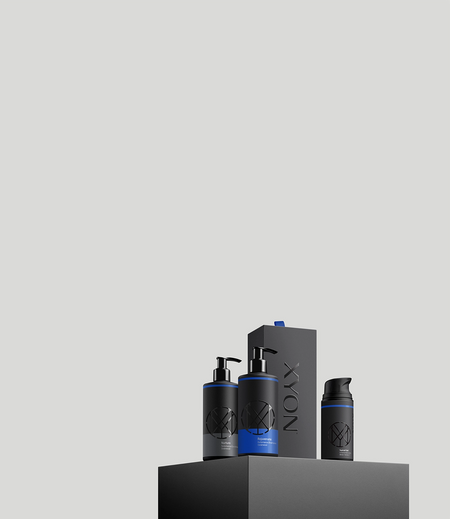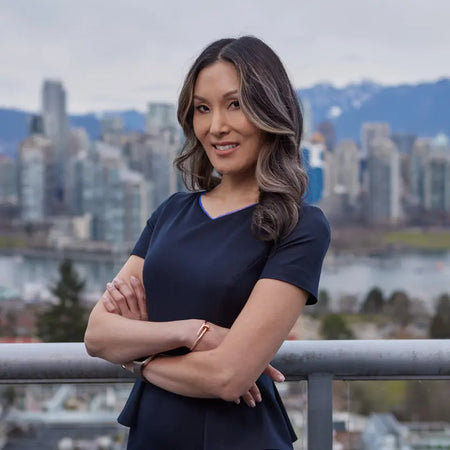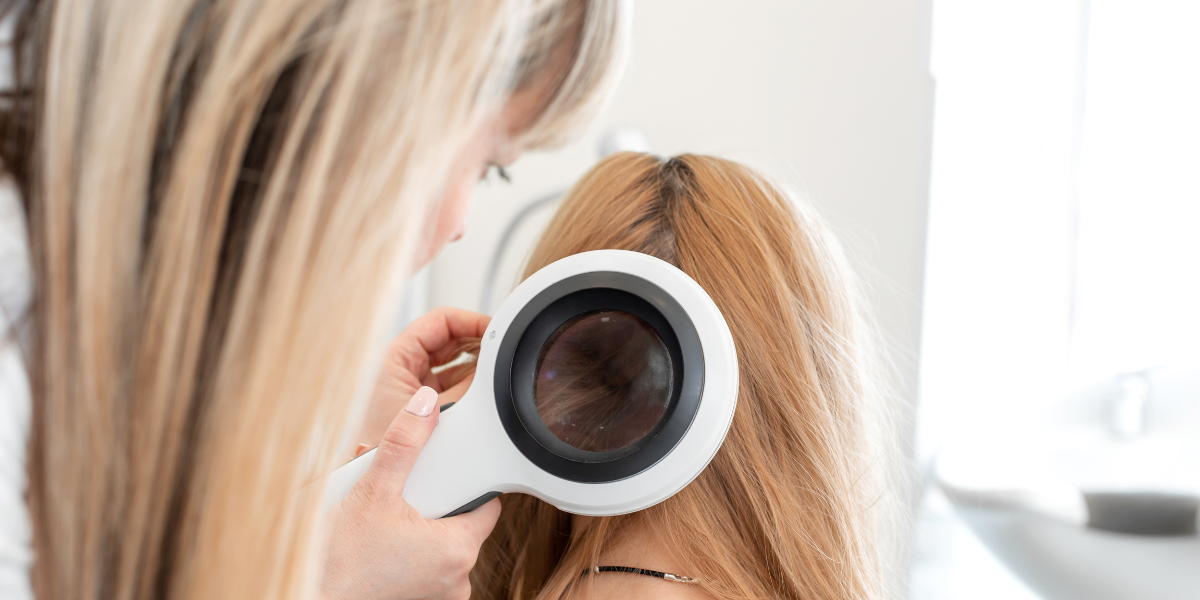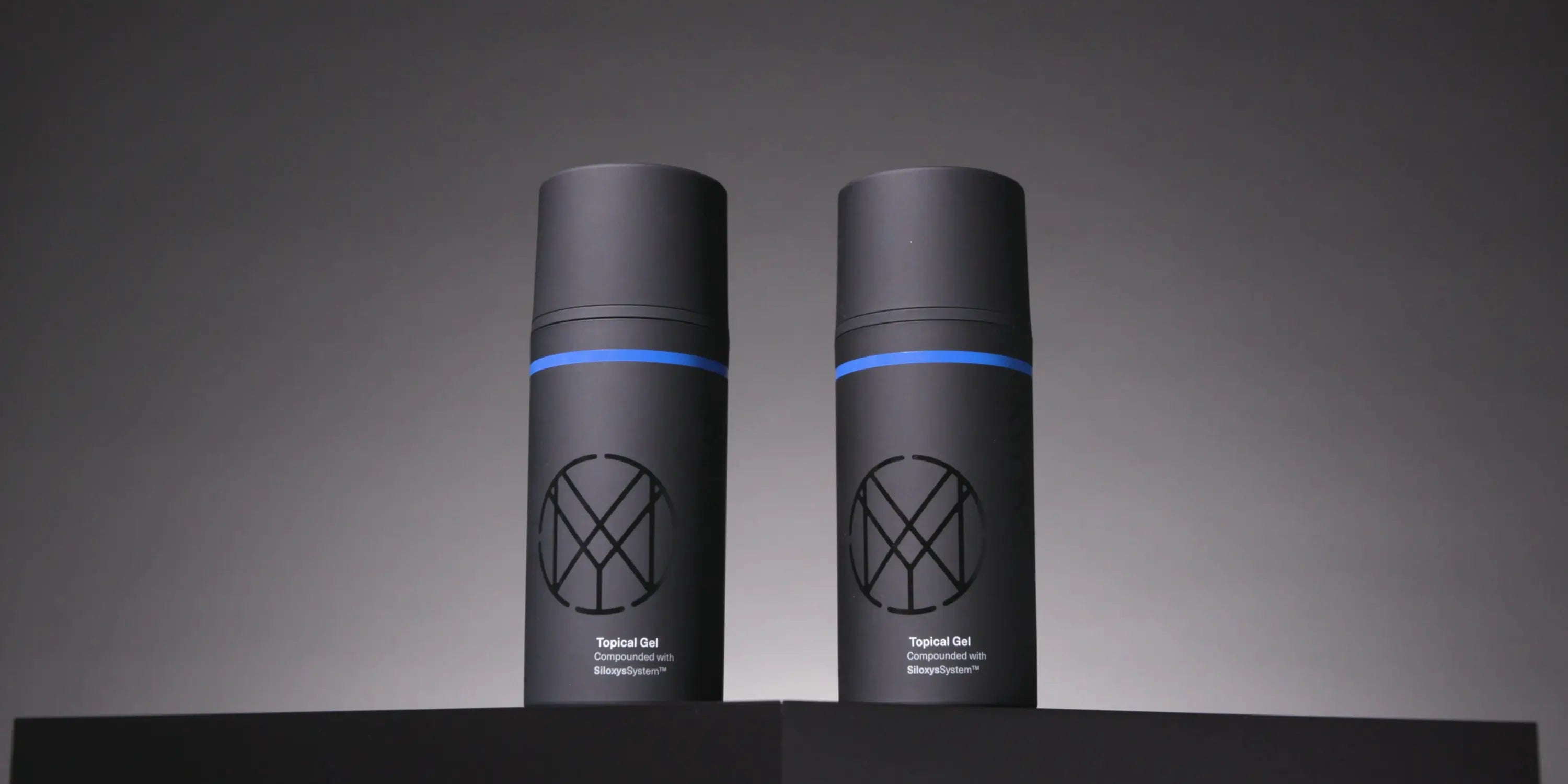What is a trichologist?
If you’re suffering from hair loss or have concerns about the health of your hair and have tried googling who to see about it, you might have come across the term trichologist. For many, this isn’t a familiar profession, so you might be wondering what exactly they do?
We spoke to a trichologist and a board-certified dermatologist to get a better understanding of how each of these professions can help you on your haircare journey. We’re going to break down the role of a trichologist and explain how to know if a trichologist is the right person to speak to about your hair and scalp concerns.
What does a trichologist do?
Trichology is the para-medical study of hair, hair loss and scalp related problems. Put simply, they’re your go-to person for any concerns you might have about your hair and scalp. Having studied all there is to know about the scalp, scalp conditions and hair health, trichologists are able to assess your concerns by taking a holistic approach. We asked trichologist Mandy Robertson from Deeply Rooted for more information about what exactly a trichologist does and she told us the following:
Trichologists specialize in the diagnosis and treatment of various hair loss and scalp conditions. They do this by taking a detailed history, reviewing pertinent medical and lifestyle information and examining the hair and scalp with a specialized microscope. Recommendations are then tailored to the specific concern and the patient's treatment goals.
As well as assessing your hair and scalp, trichologists may ask you about which products you use, your diet and your overall health. Using all of this information, they may make certain recommendations or in some cases, refer you back to the dermatologist for medical treatment.


At XYON, we believe in choices when it comes to hair loss treatment.
Whether it's a shampoo or a prescription, we're committed to helping you find the right solution.
What conditions can trichologists diagnose?
Trichologists are trained to recognize the signs and diagnose a variety of hair loss and scalp conditions, including:
- Androgenetic alopecia (male or female pattern hair loss)
- Telogen effluvium
- Alopecia areata
- Seborrheic dermatitis
- Psoriasis
As well as taking a thorough medical history, trichologists will perform a physical examination on your hair and scalp. They can do this via a variety of methods, such as:
- Using a hand-held trichoscope – a video lens used to magnify the scalp
-
Hair-pull test – this is a test used to measure the severity of hair loss
- A small amount of hair is grasped and pulled on gently
- The number of hairs that fall out are calculated to assess hair loss
- Hair mineral analysis
- Trichogram – analysis of the hair root which can give insights into the underlying causes of hair loss
What is the difference between a trichologist and a dermatologist?
Whilst trichologists are specialized in hair and scalp health, they are not considered medical doctors whereas dermatologists are medically trained. In the case of hair loss and scalp concerns, dermatologists and trichologists may work alongside each other to diagnose and treat patients.
Dr. Christina Han, a board-certified dermatologist explained the difference further:
Trichologists are trained to manage hair and scalp-related issues after undergoing a certified training program, but they’re not considered a medical doctor. Trichologists generally can’t prescribe pharmaceutical drugs, so if there’s an indication to treat an underlying scalp or hair issue, a dermatologist may be needed.
A dermatologist is a medical specialist and doctor that has undertaken training in medical school and a dermatology residency program. This often lasts 4 years, followed by another 5 years. A dermatologist is trained in all aspects of hair and scalp disorders, but also of course in the skin.
So, how do you know when to see a trichologist vs. Dermatologist?
It all depends on your symptoms and how progressive/severe they are. If you are suffering from symptoms such as redness, itching, lumps etc., and they require medical attention right away, it’s a good idea to go straight to a dermatologist. They will be able to prescribe necessary medications and perform any additional tests needed, such as blood tests.
However, if you are noticing gradual hair loss or you’re interested in finding out any steps you can take to make your hair healthier, a trichologist is a great resource to use.
The procedures that a trichologist and dermatologist are able to perform will also differ, so it’s important to understand what each can do for you. Dr. Han broke this down for us:
Trichologist can administer treatments such as PRP (platelet-rich plasma therapy) and other scalp treatments that don’t utilize any medications. Whereas dermatologist-based procedures are more focused on delivering treatments using medications and/or surgical modalities (i.e. hair transplantation), and these often require specific training.
So, depending on what you’re hoping to achieve or where you are in your hair loss journey, a trichologist may or may not be the right person to go to. If you’re choosing to avoid medication and go down the route of treatments such as PRP, a trichologist will be able to administer your treatment and guide you through any additional natural steps that you can take to optimize your hair and scalp health. However, if you are hoping to receive pharmaceutical treatment or more invasive treatments, like hair transplants, you will need to seek dermatologist help.
But this doesn’t necessarily mean that a trichologist wouldn’t be a beneficial person to seek advice from, alongside your dermatologist. You may find that speaking to both professionals gives you the most complete overview of your hair and scalp health.
It’s also worth noting that, depending on your area, it may not always be easy to get an appointment with a dermatologist right away, given the specialized nature and high demand of patients. In this case, Dr. Han reminded us that trichologists could be a good starting point, adding:
Trichologists are well-versed in diagnosing common issues like pattern hair loss (female and male), hair shedding issues and autoimmune hair loss issues such as alopecia areata.
Is a trichologist a doctor?
No, a trichologist is not a doctor. Although they’re trained in the science and structure of hair health and the scalp, they are not considered to be medically qualified.
Whereas, to become a dermatologist in the US or Canada, it can take up to 13 years. This includes an initial 3-5 years of medical school, followed by undergoing dermatology residency program. After these years of training, dermatologists will undergo medical examinations to become certified.
How do you become a trichologist
In the US and Canada, prior to entering a trichology certification program you must be a licensed cosmetologist or barber. Since trichology isn’t considered a medical profession, it is not as strictly regulated and as such, there are several different ways to gain qualifications. Most courses last anywhere between 6-months to 2 years, with some fast-track courses being available.
After completing an accredited program, trichologists will be eligible to join a professional body, such as the International Association of Trichologists.
Mandy also told us that many trichologists seek out additional training with dermatologists or other medical professionals to further hone their skills.
What can a trichologist do for hair loss?
The first thing a trichologist can do if you’re experiencing hair loss is take a medical history and physical examination to determine the cause of the hair loss and provide you with a diagnosis. Once a formal diagnosis has been established, they may give certain recommendations for treatments and various products to use or avoid, depending on individual cases. Trichologist Mandy --- added:
Trichologists may recommend specific shampoos, topical treatments, low-level laser therapy, dietary or lifestyle modifications, supplements, microneedling, or platelet-rich plasma treatments. They can also advise on prescription treatment options that may be applicable.
Can a trichologist prescribe medications?
Mandy further explained that since trichologists are not usually medical doctors, they’re not able to prescribe medications. But many trichologists will partner with medical professionals, like dermatologists, for this reason. Although they can’t prescribe medications, trichologists will be able to provide advice about whether medication is likely needed to treat the hair or scalp condition.
What can a dermatologist do for hair loss?
Dr. Han explained that what a dermatologist can do for hair loss will depend on the underlying cause and diagnosis of the specific hair loss type. This is where seeing a trichologist prior to a dermatology appointment could be useful, since trichologists can aid in the diagnosis and this may speed up the process, in some cases. Dr. Han commented further:
There needs to be a good understanding of what is causing the hair loss in order to provide treatment, as the treatments are often different depending on the underlying cause.
For example, if it’s an autoimmune or scarring hair loss, then the use of anti-inflammatories or immunosuppressive medications may be necessary. If this is a patterned hair loss, then treatments such as minoxidil or finasteride may be considered. Finally, some dermatologists are certified to do hair transplantation surgeries, and this can also be considered in those suffering from hair loss.
What type of doctor specializes in hair loss?
Because hair loss is often complex and can be caused by a variety of different factors, there are several medical specialties that may encounter hair loss conditions. The most common being dermatologists. Since it’s common for skin conditions on the scalp to cause hair loss, dermatologists will frequently encounter and treat hair loss.
Aside from dermatologists, endocrinologists are also likely to come across hair loss patients during their practice. An endocrinologist specializes in diagnosing and treating conditions of the endocrine system which consists of the glands and organs that make hormones.
As you may know, hormonal imbalances can cause hair loss and thinning. For example, around 50% of people with hyperthyroidism and 33% of people with hypothyroidism struggle with diffuse telogen hair loss (Hasan et al, 2022). In many cases, the endocrinologist will treat the hormonal imbalances causing the hair loss and with time, the hair loss will resolve. However, trichologists may act as a useful additional resource for maintaining and managing hair health alongside health conditions.
Takeaway
Trichologists are experts in the field of hair and scalp health and they’re great people to go and see if you’re looking for somebody to look at the bigger picture when it comes to your hair. Trichologists can often work alongside your dermatologist to develop a treatment plan and identify any lifestyle or product changes needed to optimize the health of your hair and prevent any hair loss from progressing.
References:
Hasan, R., Juma, H., Eid, F.A., Alasward, H.A., Ali, W.M., Aladraj, F, J. (2022). Effects of hormones and endocrine disorders on hair growth. Curues, 14(12). 10.7759/cureus.32726




